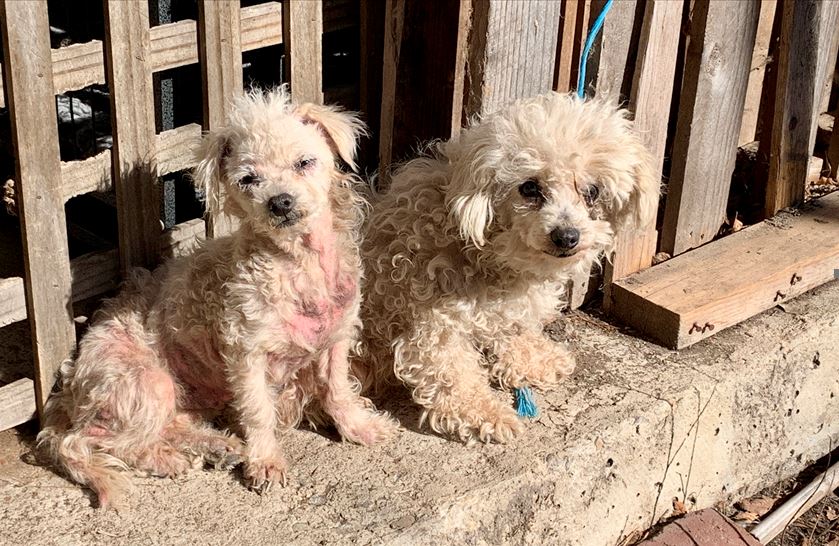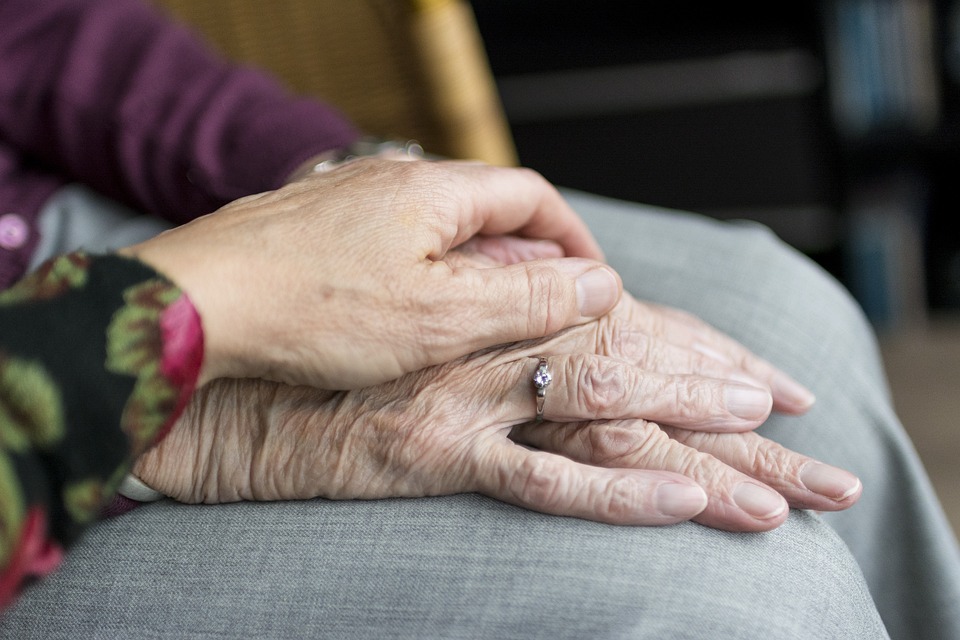A 77-year-old Bendoura woman was convicted and sentenced at Queanbeyan Local Court on Monday 27 April 2020. She had earlier pleaded guilty to charges of failing to provide veterinary treatment for dental disease, ear infections, underweight animals and conjunctivitis, as well as to one charge of committing an act of cruelty and one charge of committing an act of aggravated cruelty to an animal.
The woman was sentenced to 10 months imprisonment, to be served by way of Intensive Corrections Order. The Court ordered that all 23 seized dogs, and 11 puppies born in custody were forfeited to RSPCA NSW and prohibited the defendant from owning or breeding dogs for a period of 10 years, except for one de-sexed companion animal. $171,085.95 in veterinary and shelter costs were ordered to be paid to RSPCA NSW.
In an agreed fact document tendered on sentence, the Court heard that on Tuesday 30 July 2019, RSPCA NSW Inspectors attended the Bendoura property in response to a complaint from a distressed member of the public who reported observing at least 20 dogs kept in poor conditions.
The inspectors observed several Bichon Frise dogs severely matted and dirty with reddened skin, yellowed and decaying teeth, all living in kennels and yards which did not comply with the Code of Practice. The 77-year-old woman was identified as being the sole resident and operator of the breeding establishment and struggled to recall exactly how many dogs she currently had on site when spoken to. She did, however, admit to breeding and selling dogs and puppies from the premises for over 20 years online through her website and paid advertisements on several other websites.
RSPCA NSW inspectors saw several dogs inside the house but were unable to examine them as the woman refused them entry.
The inspectors returned on Tuesday 1 August 2019 and served Section 24N written directions requiring her to groom and treat all animals for fleas and parasites, provide relevant records and identification for all dogs, and to improve all accommodation areas to the applicable standard set out in NSW Animal Welfare Codes of Practice for the Breeding of Cats and Dogs. She again refused access to the dwelling to inspect her dogs.
On Wednesday 14 August 2019, four RSPCA inspectors from NSW and ACT accompanied by a Veterinary nurse and a RSPCA NSW Veterinarian Doctor returned to the property execute a search warrant to examine all dogs on the property including inside the house. As they arrived, they found the defendant hastily loading her dogs into a vehicle to decamp from the property. She was stopped and the search warrant was executed. Upon entry to the dwelling Inspectors found unkempt rooms, and dog faeces, urine and hair mixed with dust on surfaces. Expired worming and flea treatments were found, and every room had evidence of dogs living in them, including evidence of unhygienic whelping practices.
24 dogs were examined by the Veterinarian whilst the breeder was interviewed by inspectors. The woman claimed that only one dog named ‘Bambi’ had seen a Veterinarian since the written direction had been received. As Bambi had received veterinary treatment she was not seized, however the remaining 23 dogs were seized and transported to the RSPCA NSW Shelter at Yagoona for Veterinary treatment.
On arrival at the RSPCA NSW Sydney Shelter, intake protocols were followed, the dogs were examined by a registered veterinarian and received appropriate veterinary treatment, veterinary prescribed feeding regimes and enrichment protocols.

In a certificate of expert evidence Dr Taylor detailed significant and multifactorial veterinary conditions, all dogs had at least one veterinary condition that had not received treatment, and some had coexisting veterinary conditions, including dental disease, matted coats, severely overgrown fingernails, ear infections, intestinal and external parasites, conjunctivitis, chronic skin disease. Six dogs were in underweight body condition and all responded well to a commercially available and balanced diet considering their medical needs and age, demonstrating an ability to gain weight.
One female dog was diagnosed with an end stage ocular disease, as a result of which she required surgical enucleation resulting in the dog losing part of her eyesight and a permanent deformity.
On sentence at Queanbeyan Local Court, Magistrate Clisdell commented that it would be completely inappropriate for her to ever be allowed to undertake breeding activities again and to make orders otherwise would be to inflict cruelty on animals yet to be born. He continued that the threshold in respect of the imposition of some custodial sentence has clearly been crossed but determined that in the circumstances it was appropriate for her to serve that sentence in the community.
RSPCA NSW Chief Inspector Scott Meyers said “It is unfortunate that someone in a position of power over several animals has failed them by committing these offences. This conviction sends a message about the importance of maintaining high standards of animal welfare, especially to those who profit from their ownership. This individual been spoken to by RSPCA NSW many times over the years as a result of the action taken by the Inspectorate, and the orders of the Court, she will not be in a position to treat breeding animals in this way again.”








